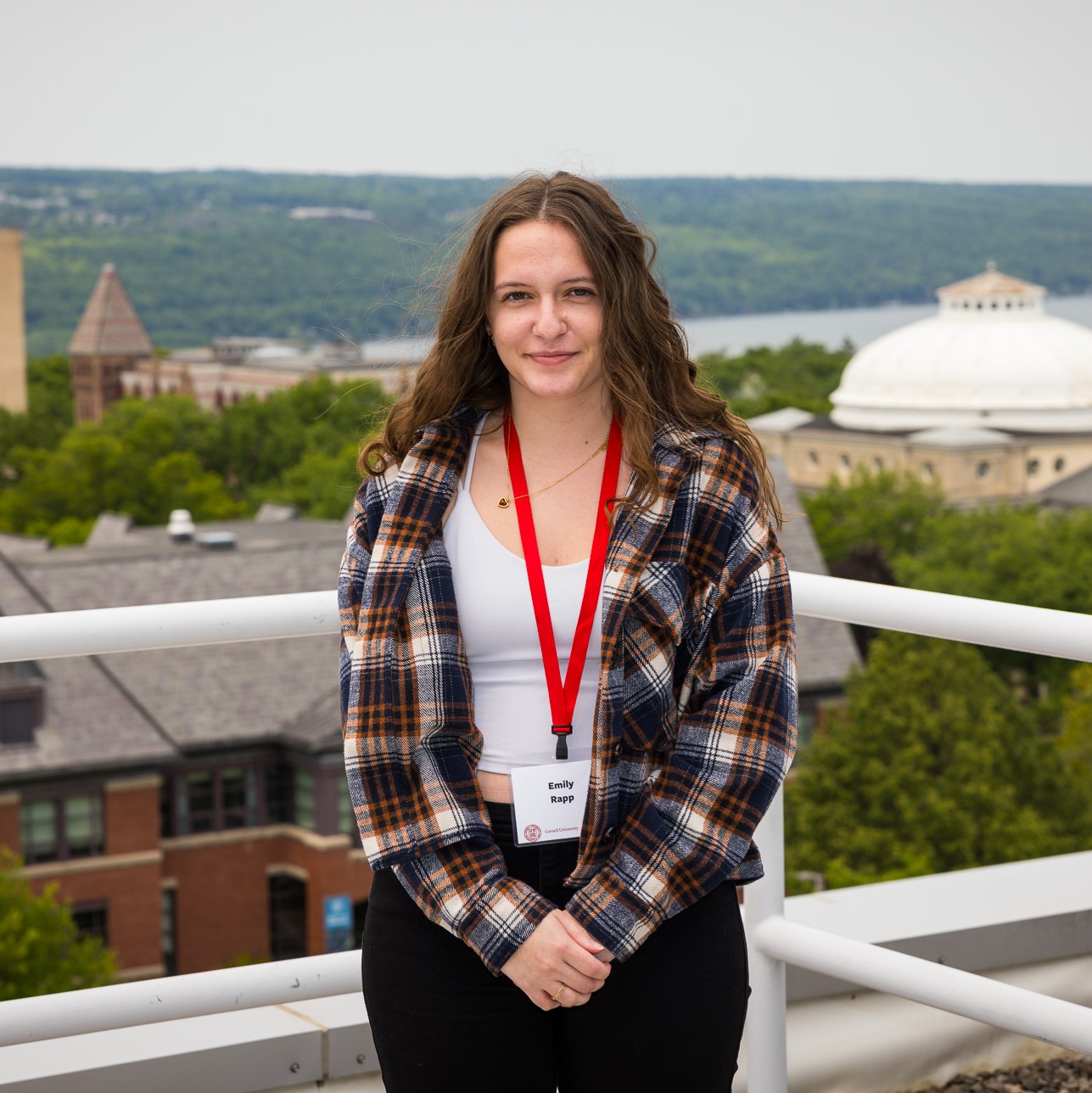Emily Rapp REU 23

Home Institution: Missouri State University
Program: REU at CLASSE
Semester: Summer 2023
Expected Graduation Year: 2025
Mentor(s): Nicole Verboncoeur and Neil Stilin
Q&A
What is your home institution and your expected graduation year?
I was born and raised in Springfield, Missouri where I attend Missouri State University and am expecting to graduate in May, 2025.
Which CLASSE summer program are you a part of and who is your mentor?
I am a participant in the CLASSE REU program and I work with two mentors: Nicole Verboncoeur and Neil Stilin.
What is the research you are engaged in and what have you accomplished so far this summer? What are you hoping to accomplish by the end of your project?
I am assisting them on the temperature mapping project where we use an array of temperature sensors to detect and map quenches in superconducting radio frequency cavities. SRF cavities are what accelerate particles in a particle accelerator using oscillating electric fields. A quench is when a superconductor gets too hot or is subjected to a strong magnetic field, loses superconductivity and returns to a normal conducting state. Quenches limit the performance of superconducting accelerator cavities so it is important to diagnose and solve these issues. By the end of my project I am hoping to write a script that streamlines the data analysis process and automatically creates 2-dimensional and 3-dimensional quench videos.
What are the impacts of your research for the general public?
Particle accelerators have many useful applications, from tube televisions to giant x-ray sources, the SRF group is working to establish niobium-3-tin cavities as replacements for pure niobium cavities. Niobium-3-tin has the potential to revolutionize the particle accelerator industry by decreasing operation costs, decreasing size and increasing the overall power of accelerators.
What are you enjoying most about this research/summer experience?
My favorite part of this project is working in the basement where the SRF group tests different cavities. I am a huge fan of hands on work and I love watching the crane lower the testing inserts into the underground testing pits. The research is amazing but the other REU students made this summer the experience of a lifetime.
What are you finding the most challenging about this research?
The most challenging part of this research was expanding my Matlab knowledge. I can confidently say that I am a better programmer because of my time here at Cornell.
How has this experience changed your view about being a researcher?
This summer has also erased my doubts about going to grad school as it was an opportunity to see what grad school is really like and I believe that I would thrive in an academic environment, especially in a field like experimental accelerator physics. Overall, this research experience was the opportunity of a lifetime and I am a better person and a better scientist for it.
